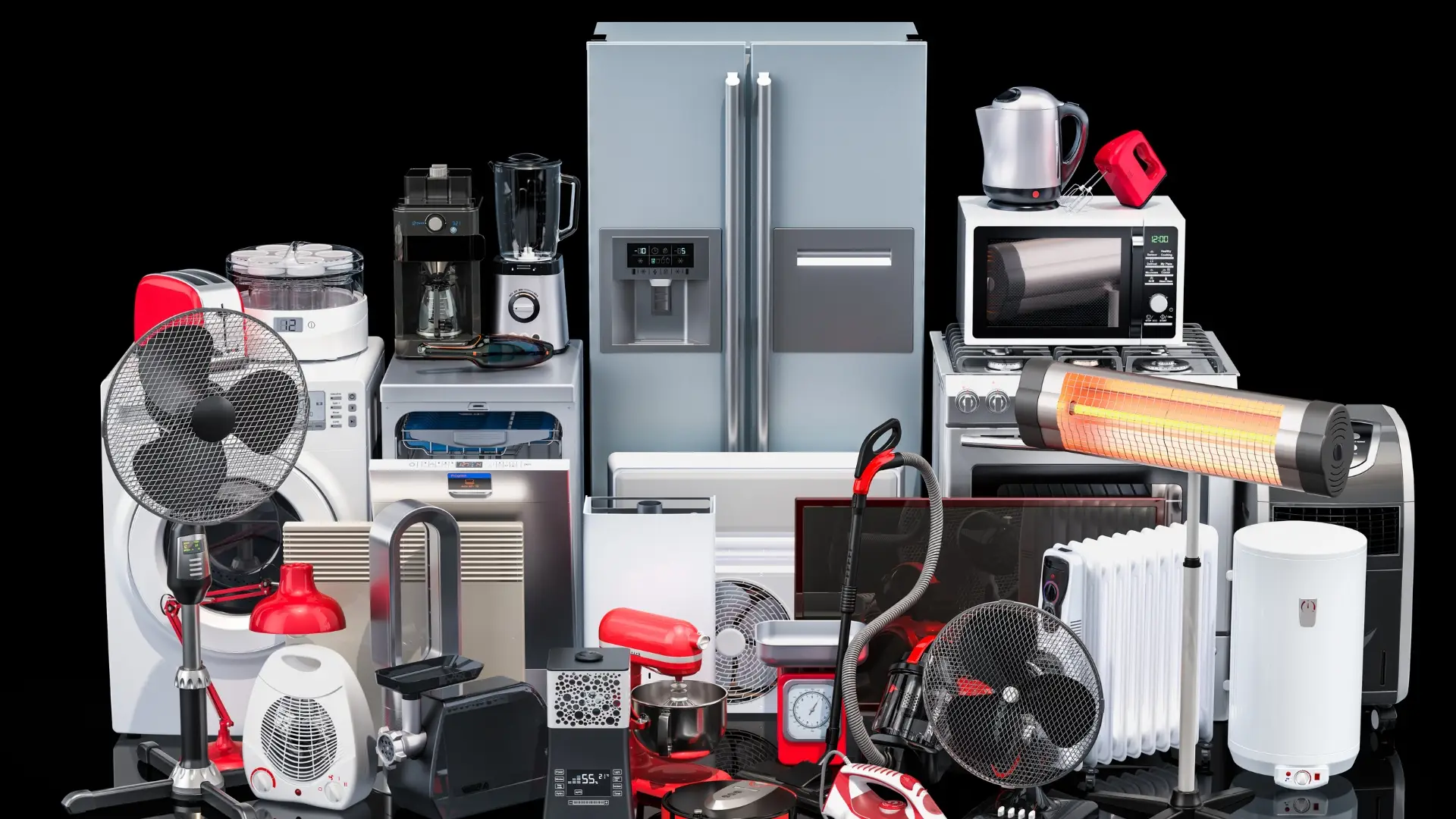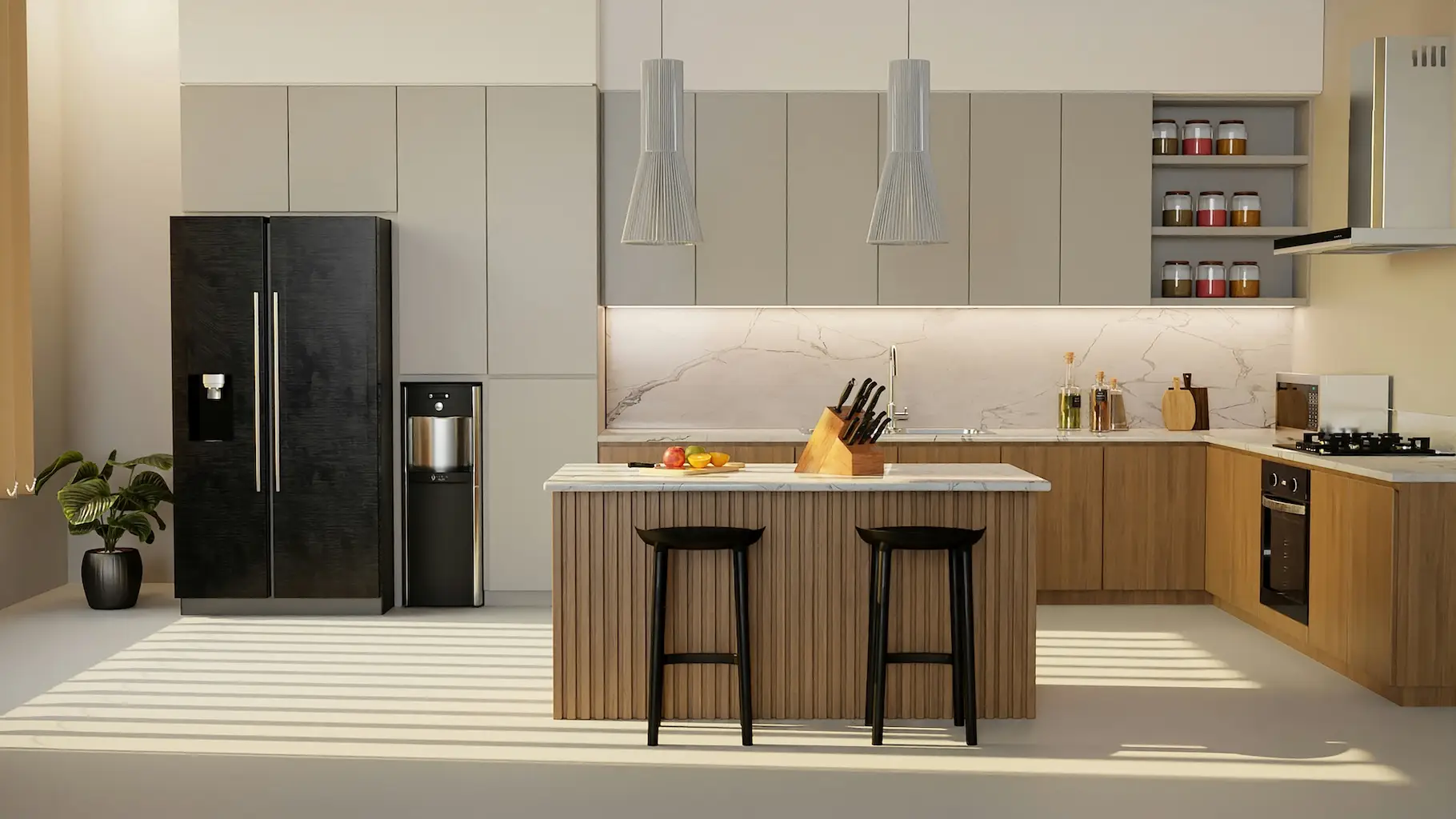Renting vs. owning appliances is a common dilemma for homeowners and renters alike.
Each option has its own set of advantages and disadvantages, and the best choice depends on your circumstances, budget, and lifestyle.
This article explores the pros and cons of renting and owning appliances, providing a comprehensive guide to help you make the most informed decision for your needs.
Understanding Appliance Rental in 2025
Appliance rental has become increasingly popular in recent years, offering a seemingly attractive alternative to traditional ownership.
But how exactly does appliance rental work in 2025, and what factors should you consider before signing on the dotted line?
This section explores the ins and outs of appliance rental, providing a clear picture of the process, costs, and available options.
How Appliance Rental Works: The Process and Requirements
Renting appliances is generally straightforward.
You choose the appliances you need from a rental company’s inventory, agree to a rental period (which can be flexible, from a few months to several years), and make regular monthly payments.
Many rental companies also handle delivery and installation, often for an additional fee, ensuring your appliances arrive safely and are set up correctly.
Upon delivery, inspect the appliances thoroughly for any damage and report any issues to the rental company immediately.
Types of Appliances Available for Rent
Most appliance rental companies offer a wide range of appliances, covering essential kitchen and laundry needs.
Refrigerators, stoves, washing machines, and dryers are commonly available for rent.
Some companies also offer specialty appliances like microwaves, toasters, blenders, and even air conditioners.
It’s important to choose appliances that fit your specific needs and lifestyle.
For example, a large family might need a larger-capacity refrigerator or a washing machine that can handle bigger loads. Consider factors like energy efficiency, noise levels (especially for dishwashers or air conditioners), and specific features before making your selections.
Appliance Rental Costs in 2025
The cost of renting appliances varies depending on the type of appliance, its features, the rental period, and the rental company.
Rental agreements often involve a monthly payment, which can be a more manageable expense than the upfront cost of purchasing an appliance.
However, it’s crucial to understand all the costs involved before signing a rental agreement.
This includes not only the monthly payment but also any additional fees, such as a security deposit, delivery and installation charges, and potential penalties for late payments or damage.
Be sure to ask about any hidden fees or charges and compare pricing between different rental companies to find the best deal.
Also, factor in the potential long-term cost of renting, which can exceed the purchase price of the appliance if you rent for an extended period.
While renting can be cheaper upfront, it’s often more expensive in the long run due to interest rates and fees.
They advise purchasing appliances new from a retailer and adding an extended warranty for better long-term value and peace of mind.
Understanding Appliance Ownership in 2025
Appliance ownership, while a significant investment, offers long-term benefits and control over your home environment.
Understanding the costs, financing options, and factors influencing appliance ownership is crucial for making informed decisions and maximizing the value of your appliances.
Financing Options for Appliance Purchases
Purchasing appliances outright can be a substantial expense.
Fortunately, various financing options are available to make these investments more manageable:
- Personal Loans: Banks, credit unions, and online lenders offer personal loans with fixed interest rates, allowing you to borrow a specific amount and repay it in fixed monthly installments. This provides predictability and helps you budget effectively.
- Credit Cards: Using a credit card can be convenient, especially if the card offers 0% APR for an introductory period. However, be mindful of interest rates and potential fees if you don’t pay off the balance within the promotional period. High-interest charges can significantly increase the overall cost of the appliance.
- In-Store Financing: Many appliance retailers offer in-store financing options, such as store credit cards or installment plans. These options can be attractive, but it’s essential to understand the terms and conditions, including interest rates, fees, and any penalties for late payments. Some in-store financing options have deferred interest promotions, where you pay no interest if you pay off the balance within a certain timeframe. However, if you don’t meet the deadline, you could be charged interest retroactively from the purchase date.
- Rent-to-Own: Rent-to-own programs allow you to make monthly payments for a set period, after which you own the appliance. However, these programs often come with high interest rates and fees, making them a more expensive option in the long run.
Understanding Appliance Depreciation: How Resale Value Decreases Over Time
Appliances, like most consumer goods, depreciate over time. This means that the resale value of an appliance decreases as it ages, even with proper maintenance.
The rate of depreciation varies depending on the type of appliance, its brand, and its condition. Understanding depreciation is essential for making informed decisions about appliance purchases and for assessing the long-term cost of ownership.
For example, while refrigerators can cost between $900 and $8,000, their lifespan ranges from 6 to 15 years. Ranges and ovens, costing between $650 and $2,000, last 10–15 years.
Washers and dryers, ranging from $350 to $1,000, have a lifespan of 8–12 years, while dishwashers, costing $400 to $700, last 8–10 years.
By understanding financing options and the concept of depreciation, you can make informed decisions about appliance ownership, minimizing costs and maximizing the value of your investment.
Uptown Appliance Repair offers expert repair and maintenance services for all major appliance brands, helping you extend the life of your appliances and protect your investment.
Contact us in Dallas ((214) 761-8300) or Houston ((281) 758-9978) for reliable and professional service.
Differences (Pros and Cons) of Renting vs. Owning Appliances
| Advantages & Disadvantages | Pros | Cons |
| Renting Appliances | Lower upfront cost; no large initial investment.
Flexibility to upgrade or change appliances easily. Easier move-ins and move-outs. Maintenance and repairs are often included. Predictable monthly expenses. |
Higher long-term costs due to interest and fees.
Limited customization options. No ownership; no equity built. Potential for hidden fees or penalties. May not be able to purchase additional product protection plans. |
| Owning Appliances | Long-term cost savings; build equity.
Customization and personalization options. No monthly payments or rental fees. Potential tax benefits (home improvement). Greater peace of mind knowing you are covered by a product protection plan. |
Larger upfront investment.
Responsibility for repairs and maintenance costs. Depreciation of appliance value over time. It can be difficult to move or transport appliances. May require financing options, which can affect credit scores. |





